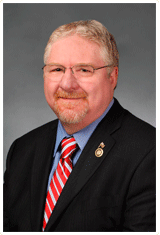Eleven years ago, the Robert Courtney case rocked the nation, in what was one of the most disturbing crimes ever committed by a healthcare professional. Courtney was a well-respected pharmacist in the Kansas City area. He’d practiced his trade for years and was loved by many of his customers, which made it all the more shocking when it was discovered that Courtney had been diluting the cancer drugs of more than 4,000 patients over a 10-year period. It’s estimated he diluted around 98,000 prescriptions. In 2002, Courtney was charged and sentenced to 30 years in prison.
The Courtney case was, in many ways, a wake-up call. A person simply has no way of knowing if the drugs given to them by their pharmacist are accurate. Now, I have no doubt that the vast majority of pharmacists are professional and trustworthy. The Courtney case made people realize trust is not enough, though. It’s a sad but all too true reality in our modern world. Even if it’s done without malice, accidents happen. Just last year a compounding pharmacy in Massachusetts dispensed contaminated drugs that resulted in 44 deaths.
After the Courtney case, the General Assembly appropriated funds to allow the Board of Pharmacy to test drugs to ensure they have the proper strength and quality. However, no law was ever placed on the books specifically granting them that authority.
Senate Bill 306, which I filed this session, gives the board clear authority to continue conducting its drug-testing program. These tests are paid for by the board at no cost to the pharmacist and can be conducted within its current budget.
Earlier this week, I testified in a House committee on SB 306. The committee approved the measure. It now awaits possible debate on the House floor.
As I’m sure many of you have heard, the Senate is currently investigating allegations that the Department of Revenue is collecting and sharing private data on citizens. The accusations came to light after a resident of Stoddard County filed a lawsuit against the department for scanning his personal information for a conceal and carry permit.
Since then, we’ve discovered the department quietly—and without the knowledge of either the public or the Legislature—implemented a new policy for receiving or renewing a driver’s license or concealed carry permit. These new rules seem to comply, at least in part, with a federal program known as REAL ID, which is prohibited under state law.
It has now come to light that the Missouri Highway Patrol sent a list of more than 160,000 concealed carry permit holders to the federal government. This is in direct violation of state law and a sickening betrayal of the trust the public puts in its state departments.
As the elected representatives of the people, it is the duty of the Legislature to set state law. This is done in a transparent and open manner. The actions taken by these departments, however, circumvented those laws with absolutely no transparency and without the input of the public or General Assembly. This is not right. No person, business, organization or department is above the law.
New details will likely emerge as we continue this investigation. We will not stop until we know the entire story and those responsible are held accountable. We have a right to know why our personal information was collected and sent to the federal government, and the Senate intends to find out.
If you have any questions or comments about this or any other matter regarding your state government, please feel free to contact me at (573) 751-1503; you are also welcome to e-mail me at jay.wasson@senate.mo.gov. |



